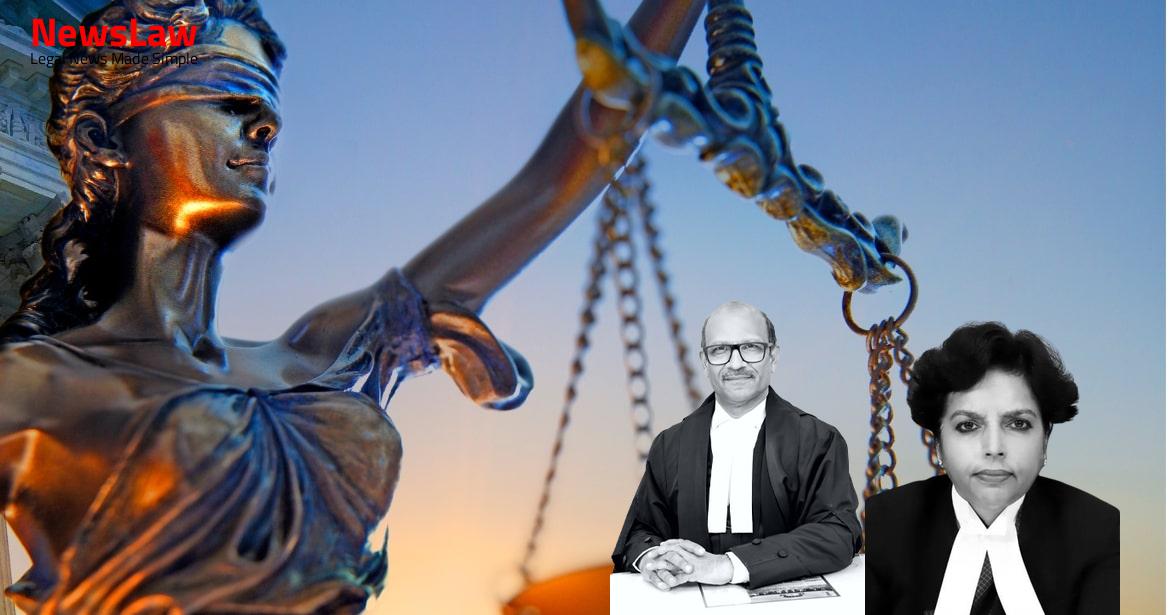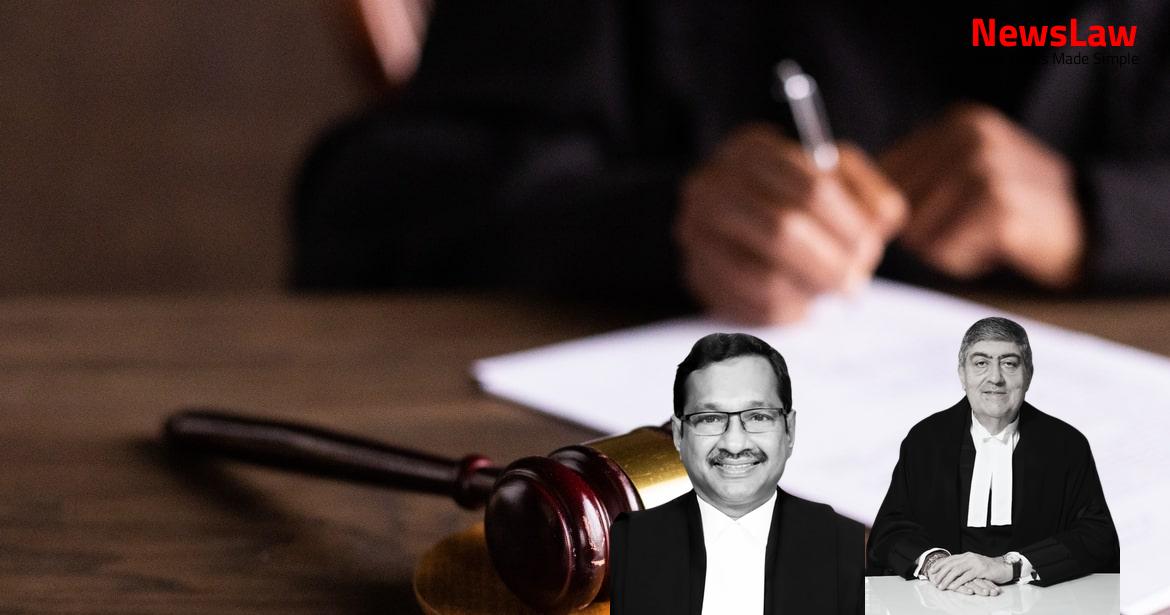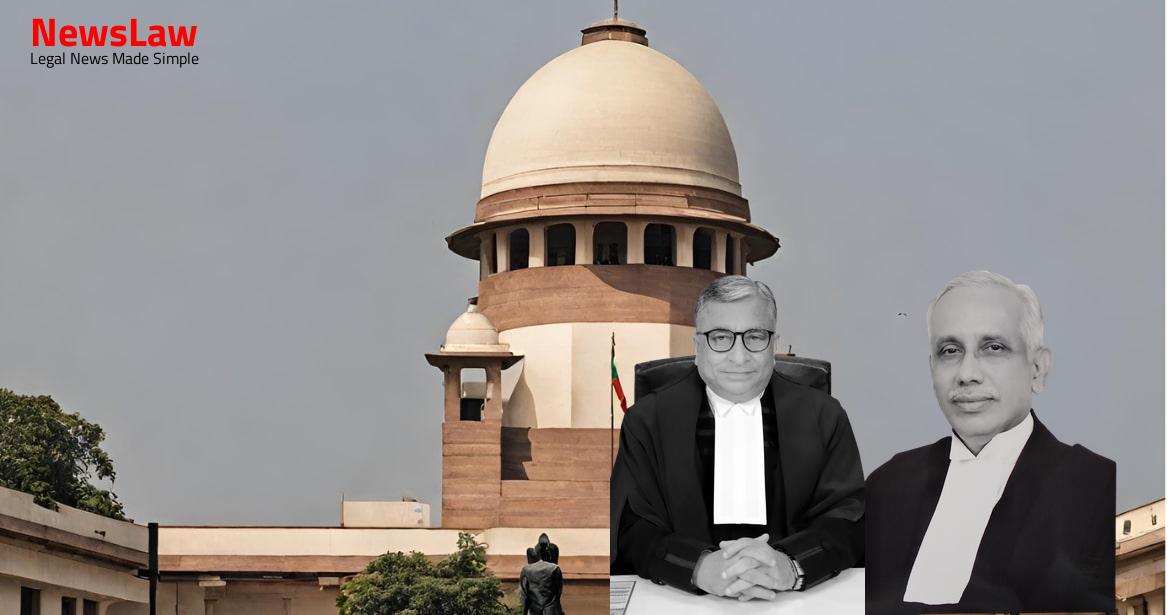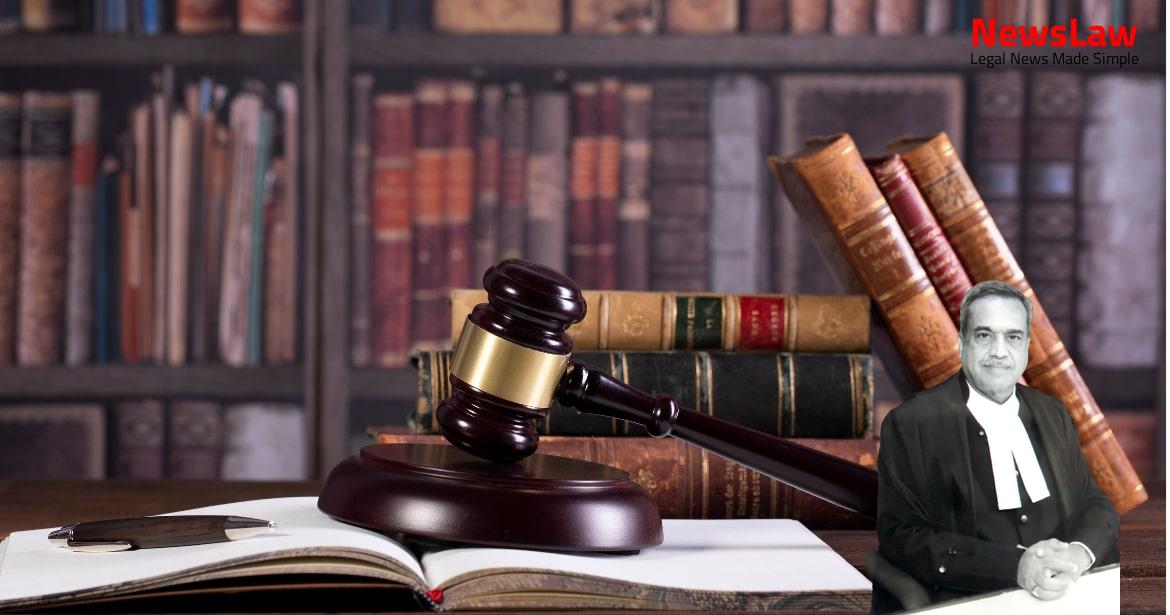In a historic decision by the Supreme Court, a landmark judgement has been pronounced in the case involving KECML and KPCL. This ruling carries immense significance in the realm of legal proceedings and has far-reaching implications. Stay tuned to uncover the intricate details of this high-stakes legal showdown.
Facts
- GCWL responsible for transporting Raw Coal from mines to MAJRI washery for processing
- Agreed specifications for washed coal: Ash < 32%, GCV 4500 Kcal/Kg, Size 0-5 mm
- Yield Parameters: GCWL to ensure 90% yield
- Quantification of loss by CBI challenged, based on coal grades and pricing system change
- MOU signed between GCWL and KECML for coal activities
- Litigation between KPCL and KECML over coal rejects ownership and value
- Judgements by Karnataka High Court and Supreme Court in favor of KECML
- Penalties imposed for delay in coal delivery, KPCL deducting money for coal washing
- Rejection of CAG audit objections by KPCL regarding coal rejects valuation
- Arguments regarding KPCL’s lack of rights over rejects and reject properties for energy generation
- KPCL shall purchase the entire quantity of specified coal supplied to BTPS at a price of Rs. 1650.47 per tonne.
- The price shall be firm at the agreed price for a quantity of one million tonnes in the first year of BTPS operation.
- The entire amount of coal produced from such coal mines shall be exclusively sold, transported, and delivered by the Supplier to the Purchaser for use at BTPS.
- KPCL shall pay the price of coal for the quantity and quality of coal on receipt at BTPS on a rake to rake basis.
- The FSA was executed on 09 May, 2007, establishing the basis of payment and price adjustment.
- Washing of coal was stopped at the washery of GCWL w.e.f. 22 May, 2012.
- Coal production at the site commenced in September 2008, and washed coal was supplied from December 2008 onwards.
- A Preliminary Inquiry was registered by the CBI on 28 September, 2012, regarding irregularities in coal block allocations.
- D Grade Coal is defined as Non-long flame coal with a UHV in the range of 4200 to 4940 Kcal/Kg as per GOI notification.
- A Joint Venture Agreement was executed between KPCL and EMTA for the development of captive coal mines and coal supply to BTPS.
Also Read: Supreme Court Judgment: Contempt Proceedings against Patanjali and Baba Ramdev
Issue
- In determining the veracity of a prayer for quashment raised by an accused, specific steps are delineated.
- Step one requires examining if the material relied upon by the accused is of impeccable quality.
- Step two involves assessing if the material is sufficient to reject the factual assertions in the charges.
- Step three considers if the material has not been refuted by the prosecution or cannot be refuted justifiably.
- Step four focuses on whether proceeding with the trial would amount to an abuse of court process and not serve the ends of justice.
Also Read: Compensation Assessment in Motor Accident Case: High Court Judgement Reversed by Supreme Court
Arguments
- The petitioners argued that the CBI initiated the case independently of the CAG report, citing the registration of PE 5 in 2012 without CAG influence.
- The emphasis was placed on the absence of proof of demand and acceptance of illegal gratification by the public servant under Section 13(1)(d) of the PC Act.
- The petitioners contended that non-incorporation of a detailed plan for the disposal of rejects in the original Mining Plan does not absolve them of responsibility.
- They disputed the respondent’s argument that the chargesheet was solely based on the CAG report.
- Counsel for the petitioners highlighted the requirement for KPCL to provide a detailed plan for rejects disposal as per the MoC’s letter and Allocation letter.
- They argued that the orders refusing sanction to prosecute certain individuals should not impact the case against the petitioners who are not public servants.
- The petitioners cited judgements to support their claim that exoneration in civil cases should reflect on criminal proceedings based on the same facts.
- The Debit Note dated 21 March, 2009 was recovered from GCWL and not KECML.
- The judgement dated 24 March, 2016 by the Karnataka High Court in a writ petition filed by KECML against KPCL is significant as it examined KPCL’s demands on KECML for reimbursement for coal rejects.
- It is argued that exoneration in civil matters should prevent criminal prosecution on similar facts; no documentation connects the rejects sold by GCWL to the appellants.
- The quantum of rejects, disputed by the appellants, was quantified wrongly by the respondent-CBI.
- The allegations against the appellants lean toward a civil dispute rather than a criminal offense, leading the court to dismiss the accusations.
- The court did not delve into detailed document and evidence analysis, surmising that the difference in figures indicated the extent of coal rejects.
- The Debit Note from March 2009 was not acted upon or approved by KECML’s Board of Directors, lacking supporting correspondence to implicate the appellants.
- Dispute over the Certificate issued in July 2010, claiming mismatched reject quantities from different periods, further contested by the appellants.
- The investigation by the respondent-CBI stemmed from a judgment by the Supreme Court in August 2014 regarding coal block allocations to Private Companies.
- The appellants’ arguments disputing the respondent-CBI’s claims were reiterated and emphasized during the proceedings.
Also Read: Equivalence of Qualifications: University of Calicut vs. KPSC
Analysis
- The Report of the CAG related to a Government Company should be submitted to the Government and then placed before each House of the Parliament/State Legislature for scrutiny.
- In this case, the Report of the CAG has not been accepted by the Public Accounts Committee, Committee of Public Undertakings, or the Joint Parliamentary Committee, nor has it been tabled before each House of the Parliament.
- The scope of the audit of the Union and the States is defined in Section 13 of the CAG Act.
- Article 149 of the Constitution of India outlines the duties and powers of the CAG in relation to the accounts of the Union, States, and other authorities.
- The duties of the CAG are elaborated further in the Arun Kumar Aggarwal case.
- Specific quantities and quality parameters for coal supply are mentioned in the agreement between the Supplier and the Purchaser.
- The High Court can exercise its inherent jurisdiction under Section 482, Cr.P.C. to quash criminal proceedings if the material produced by the accused proves their defense is based on sound, reasonable, and indubitable facts.
- The High Court, under Section 482, Cr.P.C, can consider material presented by the accused to determine if the charges should be maintained.
- Article 136 of the Constitution of India grants the Supreme Court plenary powers to interfere in suitable cases.
- The power under Article 136 is extraordinary and not restricted by any statute or constitutional provisions.
- Article 136 allows the Supreme Court to correct errors of law, safeguard fundamental rights, and ensure justice at every level.
- The appellants in the case had the option to approach the High Court under Section 482, Cr.P.C, but due to specific directions from the Supreme Court, their only recourse was to directly invoke Article 136.
- The extraordinary powers under Article 136 of the Constitution are broad and can be used to challenge charges framed by the trial court.
- The judicial conscience of the High Court should guide it in using its power under Section 482, Cr.P.C., to prevent abuse of process and secure the ends of justice.
- Respondent-CBI misinterpreted clauses of agreements
- Relied heavily on CAG Audit Report observations
- CAG Audit Report not finalized
- Glaring infirmities in the impugned orders
- Intervention of powers under Article 136 of the Constitution justified
Decision
- All taxes and duties applicable shall be reimbursed by KECML at actual.
- KECML must apply for mining lease within six months.
- Coal linkage of 2.5 mtpa from MCL to TPS must continue.
- GCWL must maintain the specified parameters for onward coal supply to BTPS of KPCL by KECML.
- Violation of conditions may lead to cancellation of block allocation or lease grant.
- Civil Appeals filed by the appellant were dismissed.
- Orders on charges dated 24 December, 2021 and 3 March, 2022 were quashed and set aside.
- Detailed exploration of the block, if needed, to be conducted by CMPDIL or under its supervision on payment basis.
Case Title: M/S. KARNATAKA EMTA COAL MINES LTD. Vs. CENTRAL BUREAU OF INVESTIGATION (2024 INSC 623)
Case Number: Crl.A. No.-001659-001660 – 2024



